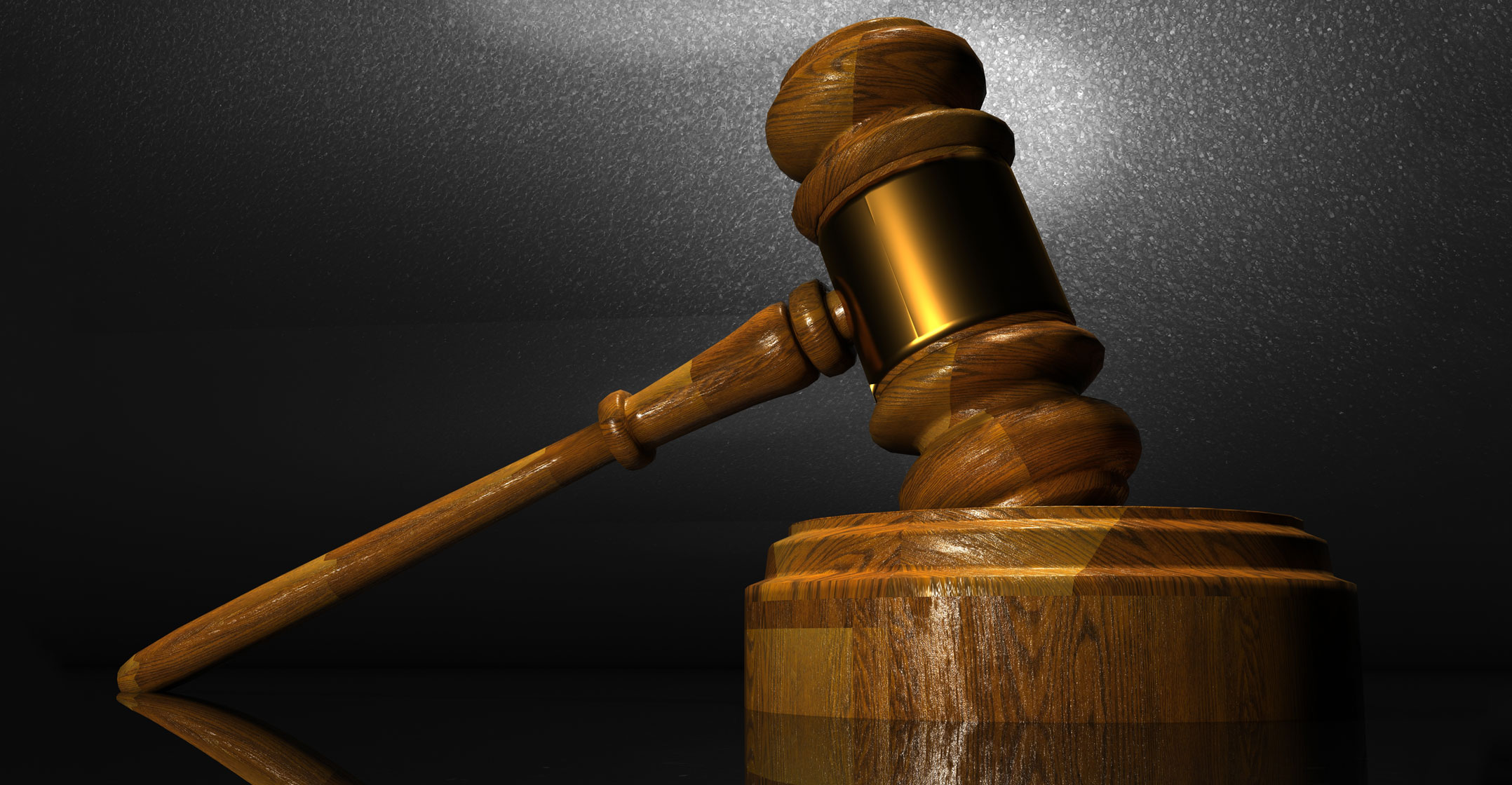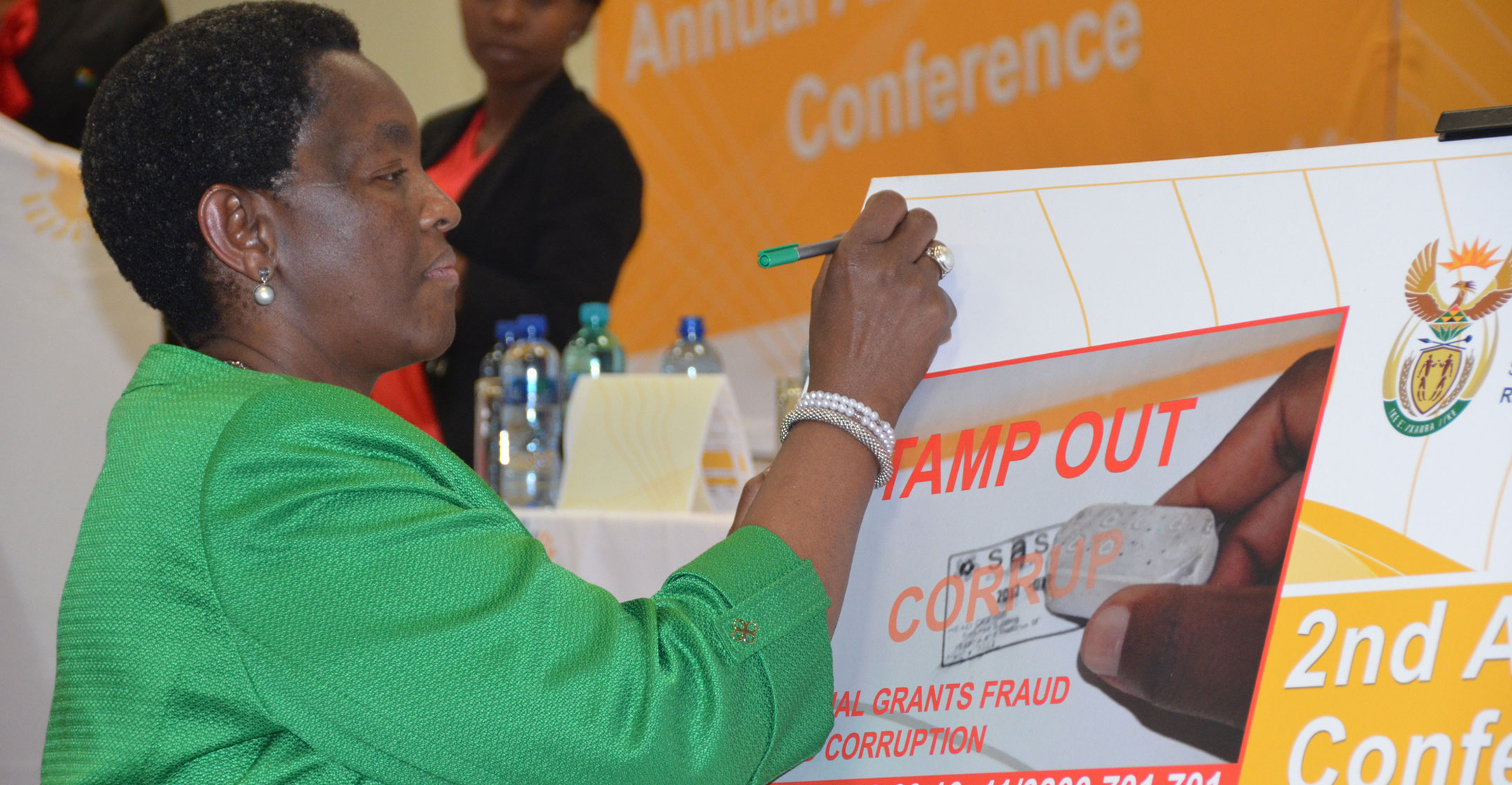 A judgment by the constitutional court that compels former social development minister Bathabile Dlamini to pay 20% of the legal costs associated with the social grants fiasco out of her own pocket is a significant development for the public.
A judgment by the constitutional court that compels former social development minister Bathabile Dlamini to pay 20% of the legal costs associated with the social grants fiasco out of her own pocket is a significant development for the public.
The unanimous judgment delivered by Justice Johan Froneman on Thursday sets a precedent in ensuring that public officials be directly held to account for their delinquent and reckless actions. It’s also about building responsive governance within the state, ensuring that public officials ethically fulfil their constitutional mandate to serve the public, especially vulnerable social grant beneficiaries.
Judgments that slap public officials with personal legal cost orders are still rare for our highly effective courts, unless the conduct of public officials is so egregious that the welfare of citizens is placed in jeopardy.
A cascade of government scandals and governance failures that have adversely impacted service delivery to the populace are prompting courts, after careful consideration, to directly sanction public officials.
Dlamini — currently minister of women in the presidency — now joins former president Jacob Zuma and public protector Busisiwe Mkhwebane as state officials who have been ordered by high courts to pay legal costs out of their own pockets. In Zuma’s case, it was for his application to interdict the release of the state of capture report; and Mkhwebane for her nasty fight with the Reserve Bank over her report on the apartheid-era bail-out given to Bankorp.
Meanwhile, Dlamini’s trail of governance scandals is long.
The latest judgment against her stemmed from the matter brought by two civil rights groups — the Black Sash and Freedom Under Law — which wanted to protect the social grant system when the contract between the South African Social Security Agency (Sassa) and Cash Paymaster Services (CPS) expired in March 2017.
The court was left with no choice but to extend the CPS contract for another year as Sassa could not take over the payment of social grants. The Black Sash pushed for Dlamini to pay legal costs as she acted “unreasonably and negligently” in handling social grants.
Inquiry
The views of the Black Sash were shared by a Section 38 Inquiry mandated by the court and chaired by retired Judge Bernard Ngoepe into Dlamini’s role in the 2017 social grants crisis.
In his report, which was submitted to the court, Ngoepe found that Dlamini misled the inquiry about appointing the “workstreams”, a parallel function within Sassa established in July 2016 that comprised advisors hand-picked by Dlamini to investigate Sassa’s capacity to take over social grant payments from CPS. The workstreams reported directly to Dlamini, undermining Sassa senior officials and contravening governance protocol.
Froneman had scathing words about Dlamini misleading the inquiry and, effectively, the court.

“At best for her, her conduct was reckless and grossly negligent. All that is sufficient reason for a personal cost order. This conclusion is a serious and sad one, especially in the context of the provision of social grants to the most needy in society … minister Dlamini must, in her personal capacity, bear a portion of the costs … Her conduct is inimical to the values underpinning the Constitution that she undertook to uphold when she took up office.”
Dlamini might face criminal prosecution for perjury. Froneman ordered that the findings from the Ngoepe inquiry be handed over to the National Prosecuting Authority (NPA) to consider whether Dlamini lied under oath and if she should be prosecuted for perjury.
If the NPA, which also faces its own credibility issues, finds that Dlamini lied, she would be the second official in president Cyril Rampahosa’s cabinet to have committed perjury.
Former finance minister Malusi Gigaba, who is now home affairs minister, was found to have lied under oath by a high court in February.
Any self-respecting public official who was found to have misled a court would resign or be fired from cabinet. To expect Dlamini to resign would be ambitious; she enjoys political protection within internal ANC structures and is crucial to Ramaphosa’s support base in the party. The nation has a better chance of discovering that unicorns exist than Dlamini deciding to act in the best interest of the country.
Although Froneman’s judgment is positive and once again demonstrates how courts have again stepped in to save the nation from political delinquency, it’s still a shock for taxpayers.
The remaining 80% of legal costs will have to be paid by the department of social development and Sassa — in other words, taxpayers. The legal bill, which we’re told runs into millions but will still be determined by various lawyers in the matter, will add to Sassa’s already bloated irregular, fruitless and wasteful expenditure of more than R1-billion.
- This article was originally published on Moneyweb and is used here with permission




